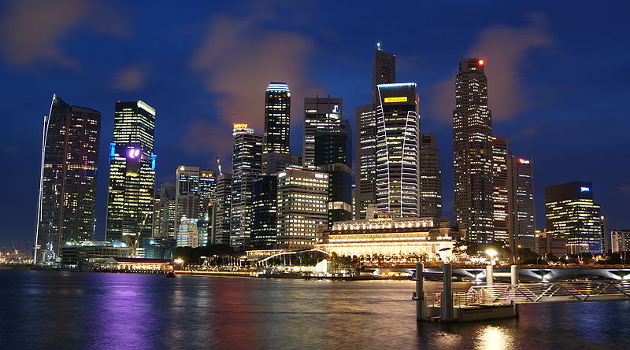Brexit was a battle over whether the United Kingdom would:
- Be a component part of the European Union
- Be a self-governing democracy
Now that British voters have chosen the second option, there’s a secondary debate about what path to choose.
Many Brexit supporters hope that the United Kingdom will use its newly restored independence to chart a more laissez-faire path, including lower taxes and less red tape.
Critics fret that this approach would mean the U.K. becoming a European version of Singapore.
My former colleague Marian Tupy explains for CapX that this would be a very desirable outcome.
Earlier this month Guy Verhofstadt, the Belgian MEP…, tweeted that…”We will never accept ‘Singapore by the North Sea’!” What exactly is wrong with being Singapore? …Back in 1755 Adam Smith observed that “little else is requisite to carry a state to the highest degree of opulence
from the lowest barbarism, but peace, easy taxes, and a tolerable administration of justice” – that certainly holds true for Singapore, which has become one of the world’s most prosperous countries by following Smith’s formula… In the last few decades, Singapore’s economy grew at a faster pace than that of the UK and the EU… Singapore’s GDP per capita, which amounted to 72 percent of the EU’s GDP per capita in 1950, amounted to 219 percent of the EU’s GDP per capita in 2019. …Life expectancy at birth is the best proximate measure of the overall health of the population. …life expectancy in Singapore trailed the EU and UK in 1960. In 2017, Singaporeans lived, on average, longer than Europeans.
Marian is right.
Singapore is an amazing example of a nation that broke through the middle-income trap, as I noted back in 2014 and 2017.
I’m particularly fond of the country because of the very modest burden of government spending. This chart, based on numbers in the IMF’s world economic outlook database, shows that the public sector consumes less than 20 percent of the economy’s output.
To put the above chart in context, government spending in the United States consume nearly 40 percent of GDP in the United States and more than half of economic output in some European nations.
Why does this matter?
Because good public policy is a recipe for more prosperity (and Singapore is very good in areas other than fiscal policy as well).
Building on Marian’s analysis, I’ve used the Maddison database to to see how Singapore compares to the United States, the United Kingdom (the former colonial master), and Malaysia (it was part of Malaysia until 1965).
This isn’t just convergence. Singapore caught up with the U.K., then caught up to the U.S.A., and now has a comfortable advantage.
Seems like a good model for the U.K. to follow. Though Hong Kong also is a very good option (though it’s unclear if that will be true in the future).
P.S. To be sure, Singapore is not a libertarian paradise. There are some strict laws governing private behavior, including the death penalty for certain drug offenses and a ban on the import and sale of chewing gum. More worrisome (given my focus on economic policy) is that officials have contemplated class-warfare tax policies.
———
Image credit: Merlion444 | CC0 1.0.



